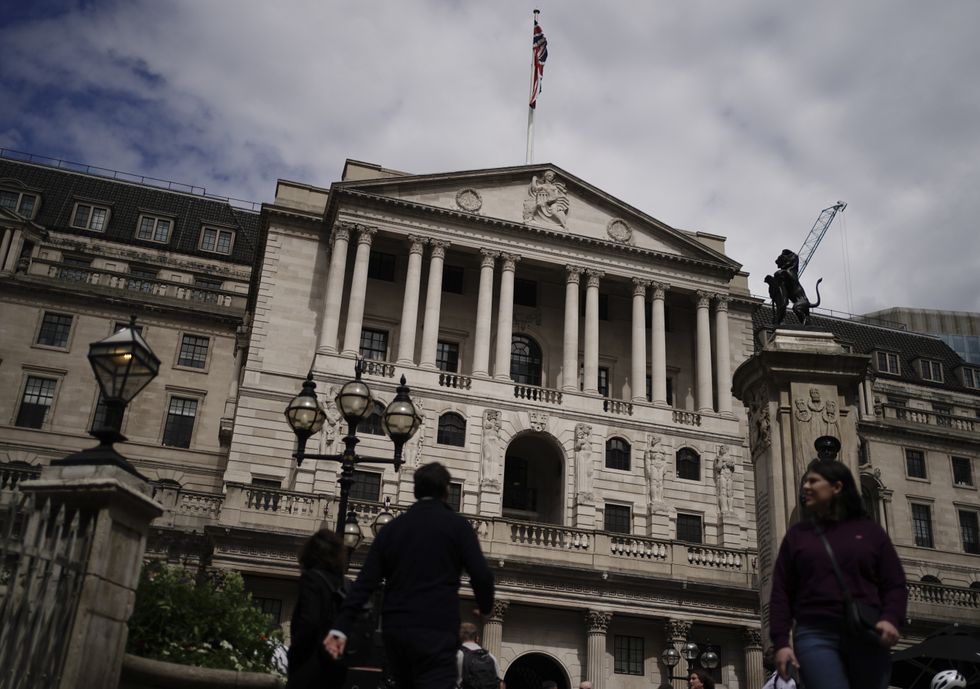
New research has shed light on whether prioritising mortgage overpayments or increasing pension contributions would make a person richer
PEXELS
Homeowners with a mortgage are being put under increased pressure following 14 consecutive interest rate rises, with the base rate now at its highest level in 15 years.
Don't Miss
Most Read
Trending on GB News
Homeowners hit by the ongoing mortgage crisis may well be wondering whether they should delay using spare cash for long-term savings goals and instead strive to pay off their mortgage sooner rather than later.
New research has shed light on whether prioritising mortgage overpayments or increasing pension contributions could make a person richer in the long run.
According to interactive investor, the flat-fee investment platform behind the calculations, the answer isn’t clear cut, as both financial tactics could make a person richer under different circumstances.
Alice Guy, the firm’s head of pensions and savings, said: “Without a crystal ball it’s difficult to say which is a better option as the outcome largely depends on the level of interest rates and stock market performance.

Ms Guy said if mortgage rates and investment performance are at the same level, 'then there’s not much in it'
PEXELS
“Broadly speaking, if the stock market grows more than mortgage interest rates then you could be better off concentrating on boosting your pension saving, whereas if mortgage interest rates outstrip investment performance, you might benefit more from paying off your mortgage first and then concentrating on boosting your pension.”
Ms Guy said if mortgage rates and investment performance are at the same level, “then there’s not much in it”.
The experts pointed out that maximising pension tax relief could make a big difference to wealth over time.
Ms Guy said: “For most people, it’s not a good idea to stop paying into your pension to top up your mortgage, because you’ll potentially lose free employer contributions, which can hugely boost your pension wealth in the long run.
“If however, you have extra cash spare to invest, you’ll have a difficult decision to make: whether to use the extra cash to pay off your mortgage more quickly or boost your pension savings instead. Ideally, if you can afford it, it’s best to do both.”
Interactive investor laid out three different scenarios, for illustrative purposes only, based on someone with a £200,000 mortgage with a term of 25 years.
In scenario one, the person paid £200 extra into their pension for 25 years, which would grow to £250 after tax relief.
A second instance was a person who paid £200 extra off their mortgage, clearing it early. They then diverted the mortgage payments plus the extra £200 into their pension until they reached 25 years in total.
Interest rates remain static for this illustration, although, in reality, they would change over time.
Extra pension wealth after 25 years
Option one: Overpaying mortgage first and then pension (with tax relief)
- 6% interest rates, 5% investment growth: £165,901
- 6% interest rates, 6% investment growth: £171,455
- 5% interest rates, 6% investment growth: £152,758
Option two: Paying into pension first
- 6% interest rates, 5% investment growth: £148,877
- 6% interest rates, 6% investment growth: £173,248
- 5% interest rates, 6% investment growth: £173,248
Option three: Overpaying mortgage first and then pension (no tax relief)
- 6% interest rates, 5% investment growth: £132,720
- 6% interest rates, 6% investment growth: £137,164
- 5% interest rates, 6% investment growth: £122,224
Difference between options one and two:
- 6% interest rates, 5% investment growth: £17,024
- 6% interest rates, 6% investment growth: £-1,793
- 5% interest rates, 6% investment growth: £-20,490
Assumptions:
- 25-year repayment mortgage, 20 per cent tax relief.
- Option one, two and three - overpayment into mortgage or pension of £200 per month
- Option one and three - once the mortgage is paid off, divert mortgage payment into a pension, returns net of investment fees
LATEST DEVELOPMENTS:

The Bank of England has increased the base rate to 5.25 per cent
PA
Pension tax relief
The calculations were carried out with pension tax relief and without, with interactive investor finding it could make a “big difference”.
Ms Guy said: “There’s a risk that someone who pays off their mortgage first and then maxes out their pension contributions could miss out on valuable tax relief if their pension contributions outstrip their taxable earnings.
“If you’re a higher rates taxpayer, it’s also possible that you won’t get as much tax relief if you decide to wait to boost your pension wealth.
“It’s possible that you’ll not earn enough in the future to get higher rate tax relief if you pile a large amount into your pension in just a few years.”








